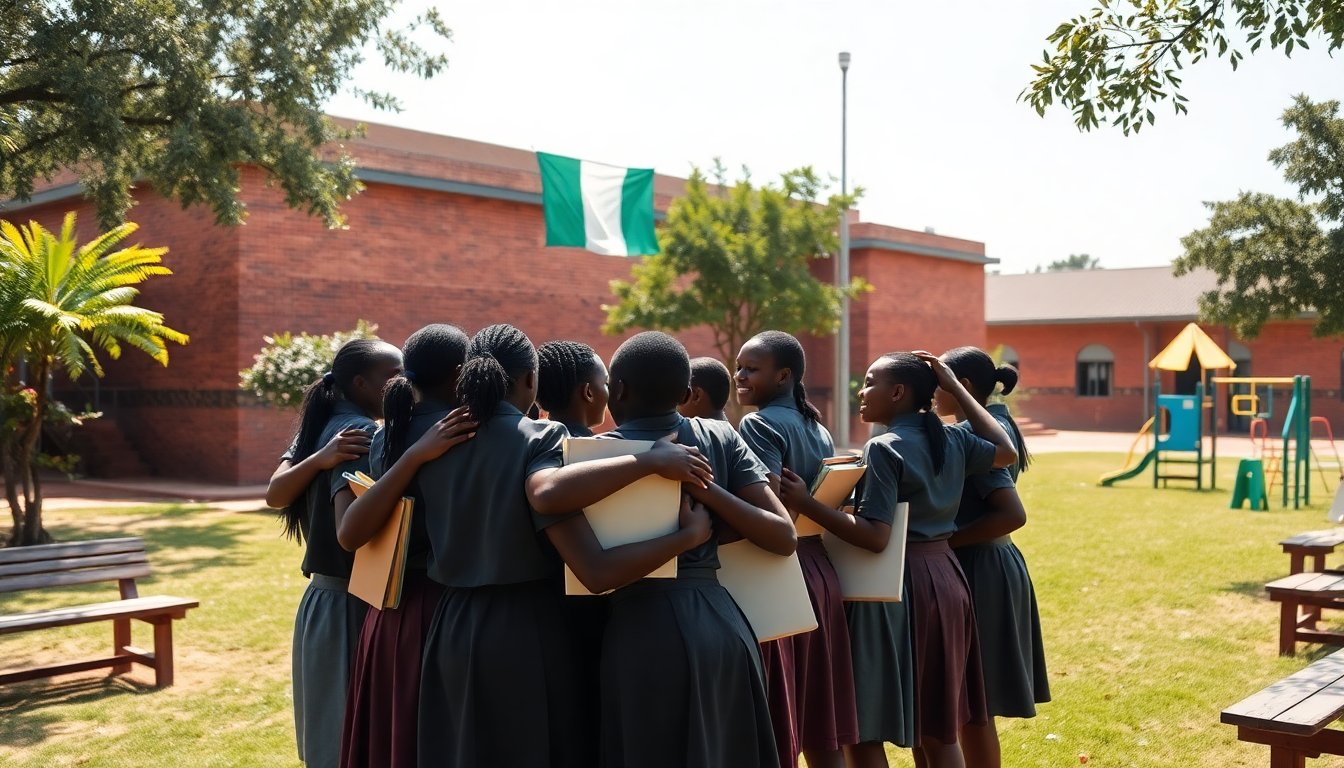Table of Contents
In a significant development, President Bola Tinubu of Nigeria confirmed the safe return of all 24 schoolgirls who were abducted from their school in Kebbi State last week. This kidnapping incident, which occurred on November 17, has highlighted the ongoing crisis of mass abductions that have affected the country in recent years.
The president expressed his relief over the rescue and underscored the urgent need for enhanced security measures to prevent future incidents. He stated, “I am relieved that all the 24 girls have been accounted for. Now, we must urgently increase the number of security personnel in vulnerable areas to avert further kidnapping incidents.”
Context of the kidnappings in Nigeria
Nigeria is facing a troubling wave of mass kidnappings, particularly in its northern regions. The recent incident in Kebbi State is part of a larger trend of such attacks across the country. In another alarming event, over 300 students and staff were taken hostage from a Catholic school in Niger State, underscoring the deepening crisis.
Details of the Kebbi abduction
During the assault on the school in Kebbi, armed assailants invaded the premises, resulting in the abduction of several students. Authorities initially reported that 25 girls had been taken; however, President Tinubu later confirmed that all but one were successfully rescued. The details of the rescue operation have not been disclosed, but it is being regarded as a notable success amid rising concerns about security in the region.
National response and security measures
In response to the escalating issue of kidnappings, the Nigerian government is under increasing pressure to enhance national security measures. President Tinubu has vowed to closely monitor the situation, ensuring that security forces remain both vigilant and proactive. He emphasized the effectiveness of these efforts, stating, “Thanks to the dedication of our security forces, the 38 individuals kidnapped in a recent incident at a church in Kwara State have been rescued. This underscores our commitment to safeguarding citizens.”
The president’s comments highlight growing concerns regarding the safety of educational institutions in the region. In light of the scrutiny surrounding these mass abductions, the government has ordered the closure of several schools in areas identified as particularly vulnerable to attacks.
Implications for education and safety
The persistent threat of kidnappings has instilled a sense of fear among students and their families. Educational institutions, once regarded as safe environments for learning, are now approached with caution. Parents express growing concern about sending their children to school due to recent abductions and the associated dangers. The psychological effects on students impacted by these events can be significant, hindering their educational pursuits and overall well-being.
Moreover, the international community is increasingly attentive to the situation in Nigeria. There have been widespread calls for action, including urgent appeals for the release of those still held captive, alongside initiatives aimed at addressing the underlying causes of these violent acts.
The road ahead for Nigeria
Nigeria continues to face significant challenges, particularly regarding the safety of its citizens, especially vulnerable youth. The recent rescue of schoolgirls in Kebbi highlights the ongoing battle against insecurity and the urgent need for comprehensive strategies to address the rampant kidnapping crisis.
While the safe return of the schoolgirls is a positive development, it emphasizes the necessity for the Nigerian government to establish effective security protocols and preventive measures. Addressing these issues requires concerted efforts to disrupt the cycle of violence and fear, enabling students to pursue their education free from the threat of abduction.


